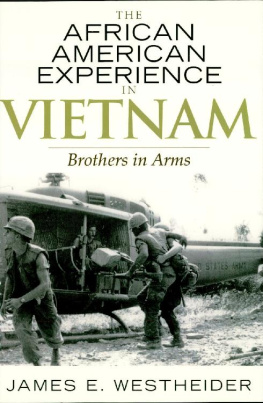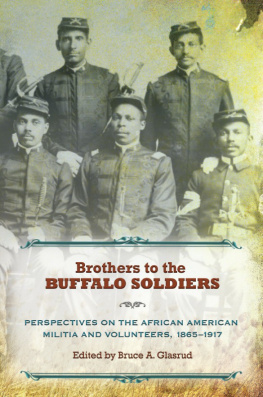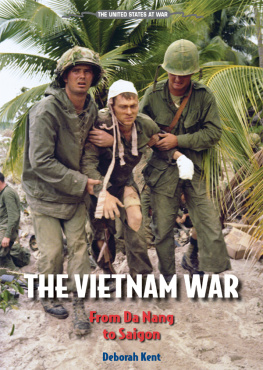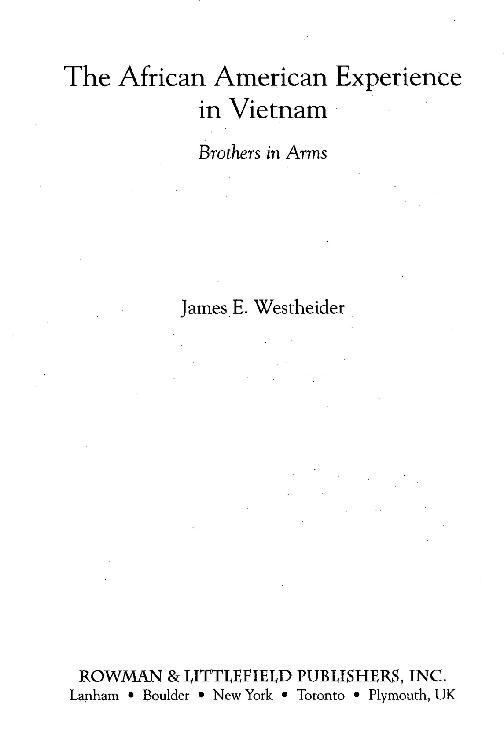The African American History Series
Series Editors:
Jacqueline M. Moore, Austin College
Nina Mjagkij, Ball State University
Traditionally, history books tend to fall into two categories: books academics write for each other and books written for popular audiences. Historians often claim that many of the popular authors do not have the proper training to interpret and evaluate the historical evidence. Yet, popular audiences complain that most historical monographs are inaccessible because they are too narrow in scope or lack an engaging style. This series, which will take both chronological and thematic approaches to topics and individuals crucial to an understanding of the African American experience, is an attempt to address that problem. The books in this series, in lively prose by established scholars, are aimed primarily at nonspecialists. They focus on topics in African American history that have broad significance and place them in their historical context. While presenting sophisticated interpretations based on primary sources and the latest scholarship, the authors tell their stories in a succinct manner, avoiding jargon and obscure language. They include selected documents that allow readers to judge the evidence for themselves and to evaluate the authors conclusions. Bridging the gap between popular and academic history, these books bring the African American story to life.
Volumes Published
Booker T. Washington, W.E.B. Du Bois, and the Struggle for Racial Uplift
Jacqueline M. Moore
Slavery in Colonial America, 1619-1776
Betty Wood
African Americans in the Jazz Age: A Decade of Struggle and Promise
Mark Robert Schneider
A. Philip Randolph: A Life in the Vanguard
Andrew E. Kersten
The African American Experience in Vietnam
James E. Westheider
ROWMAN & LITTLEFIELD PUBLISHERS, INC.
Published in the United States of America
by Rowman & Littlefield Publishers, Inc.
A wholly owned subsidiary of The Rowman & Littlefield Publishing Group, Inc.
4501 Forbes Boulevard, Suite 200, Lanham, Maryland 20706
www.rowmanlittlefield.com
Estover Road
Plymouth PL6 7PY
United Kingdom
Copyright 2008 by Rowman & Littlefield Publishers, Inc.
All rights reserved. No part of this publication may be reproduced, stored in a retrieval system, or transmitted in any form or by any means, electronic, mechanical, photocopying, recording, or otherwise, without the prior permission of the publisher.
British Library Cataloguing in Publication Information Available
Library of Congress Cataloging-in-Publication Data
Westheider, James E., 1956-
The African American experience in Vietnam : brothers in arms /
James E. Westheider.
p. cm.(African American history)
Includes bibliographical references and index.
9780742569515
Vietnam War, 1961-1975African Americans. I. Title.
DS559.8.B55W46 2008
959.704308996073dc22
2007008668
Printed in the United States of America
 The paper used in this publication meets the minimum requirements of American National Standard for Information SciencesPermanence of Paper for Printed Library Materials, ANSI/NISO Z39.48-1992.
The paper used in this publication meets the minimum requirements of American National Standard for Information SciencesPermanence of Paper for Printed Library Materials, ANSI/NISO Z39.48-1992.
For my wife Virginia
Acknowledgments
Thanks to all the fine people at Rowman & Littlefield Publishers, but especially Laura Gottlieb, and to African American History Series editors Nina Mjagkij and Jackie Moore. I owe a debt of gratitude to my colleagues at the University of Cincinnati-Clermont College, but in particular Dan Goodman, Habtu Ghebre-Ab, Howard Todd, Michael Vislosky, and my division chair Patricia Friel, and to Terri Premo, Dan Beaver, Herb Shapiro, and John Brackett. Special thanks go to Fred Krome, managing editor of the Journal of the Archives of Hebrew Union College ; Joe Fitzharris, St. Thomas University; Don Bittner, Marine Command School, Quantico; Selika Duckworth-Lawton, University of Wisconsin, Eau Claire; David Ullrich, Ball State; and Chris Dixon, University of Newcastle, Australia. I also owe a debt of gratitude to all the veterans who were willing to share their experiences in Vietnam with me, but especially to Alfonza Wright, and Allen Thomas Jr. Thanks to the National Archives, University of Cincinnati Libraries, U.S. Military History Institute at Carlisle Barracks, and Cornell University Archives.
Last but certainly not least I need to thank Bill Brungs, Mark Herbig, Mike Tojo, Tony Saupe, Paul Cerbel Justice, Mike Kruse, Jay Williams, and my sister Sandy Bains, all good friends who helped me keep a shred of sanity during the process. Most of all I need to thank my wife Virginia, for her patience, help, and advice. It is to her that this book is dedicated.
Chronology
Militia Act of 1792 Congress bars African Americans from serving in state militias.
1820 Blacks excluded from the U.S. Army.
September 20, 1861 Black service in the U.S. Navy authorized, about thirty thousand served in the Civil War.
JulyAugust 1862 Congress authorizes the army to begin recruiting black soldiers, and 186,000 African Americans served the Union as United States Colored Troops during the Civil War.
1866 Congress authorizes the establishment of four black regiments in the army, the Twenty-fourth and Twenty-fifth Infantry, and the Ninth and Tenth Cavalry, better known as the Buffalo Soldiers.
1870 James Webster Smith becomes the first African American to be appointed to the United States Military Academy at West Point.
1877 Henry O. Flipper becomes the first African American to graduate from West Point.
1889 Charles Young graduates from West Point, becoming only the third African American and last to do so in the nineteenth century.
August 13-14, 1906 The Brownsville Riot. Black troopers in Brownsville, Texas, exchange gunfire with white civilians leaving one civilian dead. One hundred sixty-seven black soldiers receive dishonorable discharges from the army without benefit of court martial.
May 1917 War Department establishes Fort Des Moines, the first black officers training camp, and 639 cadets graduate and are commissioned officers in the army during World War I.
August 23-24, 1917 The Houston Riot. The worst clash between black troops and white civilians in American history results in nineteen people killed. Seventy black soldiers were convicted of mutiny and murder; nineteen were executed and the rest given life in prison at hard labor.
June 1936 Benjamin O. Davis Jr., son of Colonel Benjamin O. Davis Sr., graduates from West Point, only the fourth African American to do so.
October 1940 The Selective Service Act of 1940 prohibits discrimination based on race or color.
October 1940 Benjamin O. Davis Sr. is promoted to brigadier general, becoming the first black general in American history.
June 1942 President Franklin D. Roosevelt orders the Marine Corps and U.S. Navy to enlist African Americans.












 The paper used in this publication meets the minimum requirements of American National Standard for Information SciencesPermanence of Paper for Printed Library Materials, ANSI/NISO Z39.48-1992.
The paper used in this publication meets the minimum requirements of American National Standard for Information SciencesPermanence of Paper for Printed Library Materials, ANSI/NISO Z39.48-1992.
